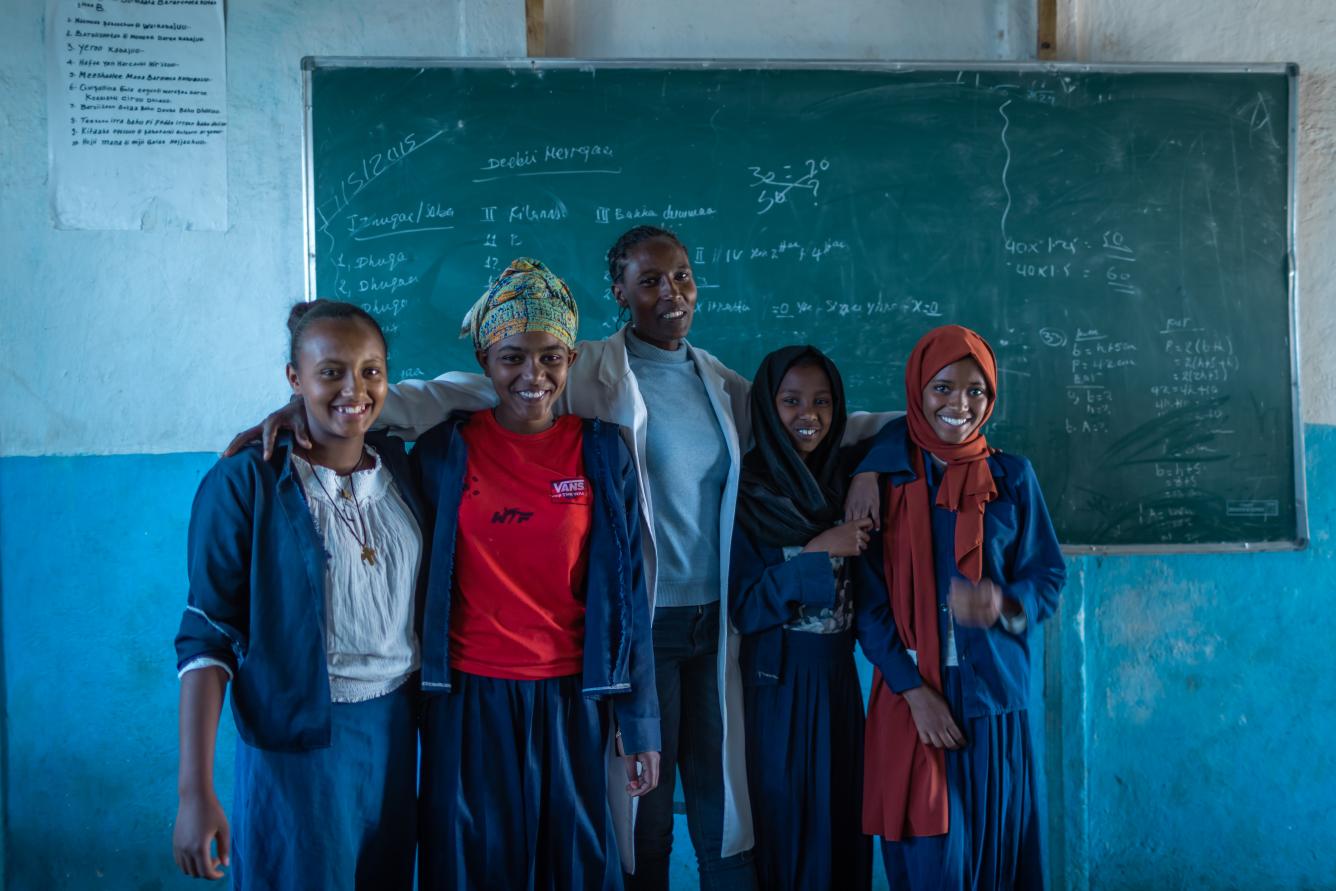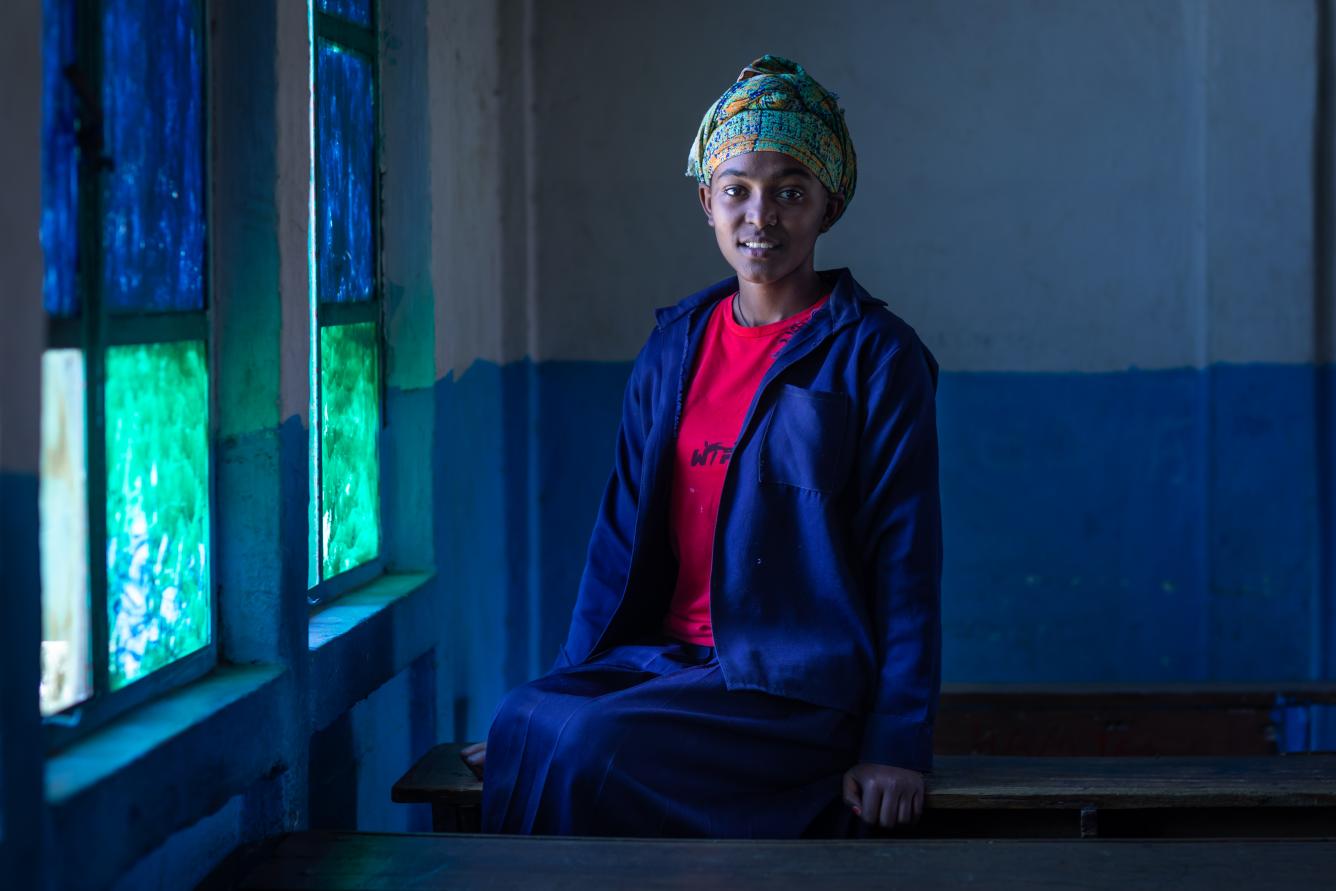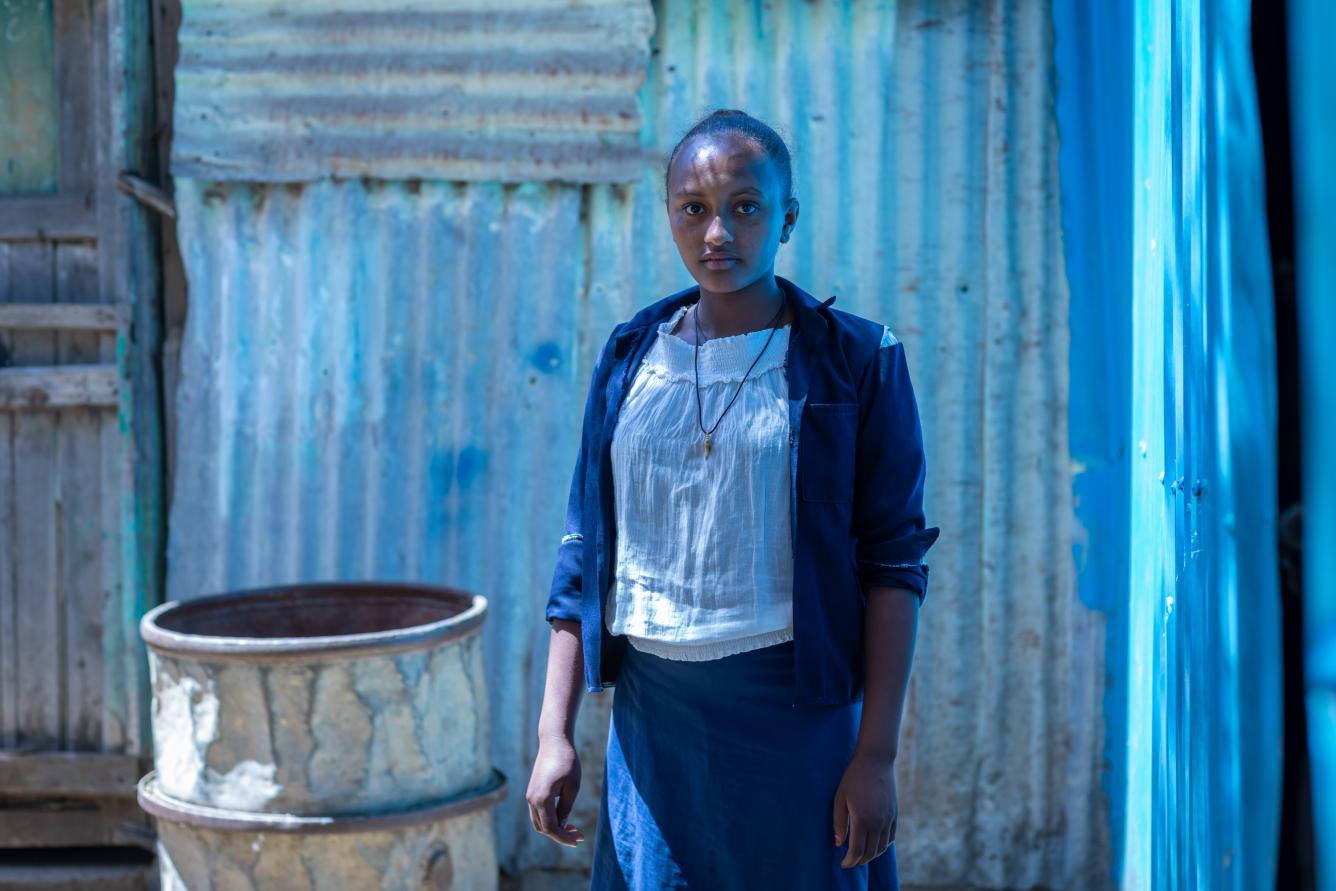The condition making teen girls tired, faint and miss out on school
By Samuel Waterton - Global Social Media Strategist, UNICEF
Anaemia can cause dizziness, fatigue and fainting. This is how UNICEF and partners are helping prevent it in adolescent girls living in Ethiopia’s Oromia region.
“When I stood up to go home from school, I got vertigo and fell. I almost hit my head on the classroom table.” After fainting, 15-year-old Aynye Aman was diagnosed with anaemia, a condition caused by a lack of iron in the blood which affects 1 in 3 adolescent girls and women globally. Common symptoms include tiredness, dizziness, heart palpitations, shortness of breath and pale skin.
Aynye attends Haile Aba Marsa, a brightly decorated school perched on top of a hill in Sire, Oromia. Her teacher, Etenesh Sime tells us that many girls used to pass out at school, that is until they started to receive a programme of weekly iron and folic acid supplements supported by UNICEF.
“The supplements are helping improve school performance and attendance.”
- Etenesh Sime, Science Teacher

Etenesh, trained by UNICEF, is the driving force behind the project’s success. The science teacher, who radiates warmth and a genuine concern for her students' wellbeing, managed to increase uptake of the supplement by 25% between October and December 2022.
Aynye had decided against taking the supplements when they first became available believing rumours that they caused infertility. Encouragement from Etenesh helped change her mind, who patiently explained the benefits, and took the tablets herself to show they were safe.
“I wish I had taken them earlier now,” says Aynye. After taking the supplements, which are distributed intermittently for a period of three months at 12-week intervals, she felt much less tired and her menstrual cramps vanished. “I feel much better now and I’m looking forward to the next round.”

Barriers to adolescent girl’s nutrition and health
One of the challenges affecting the health of girls in this region is a lack of access to a diverse diet. “We are poor,” says Aynye. “We don’t get enough meat or milk, which is why the supplements are so useful.” Her classmate, 15-year-old Tsion Mengistu also faces issues. “We don’t always have money to buy fruit, meat and vegetables and even when we can, sometimes they aren’t available in the market.”
In addition to the unavailability or affordability of nutritious food, patriarchal norms also disadvantage girls. “The males get fed first,” says Tsion. “By the time I finish my chores, there’s less food and sometimes no food at all.”

With cards stacked against the health and nutrition of adolescent girls, iron and folic acid supplements provide a crucial bank of support which can improve school performance, future work opportunities and when older, the chances of a successful pregnancy.
With funds from the Canadian government (Global Affairs Canada), UNICEF is supporting the Federal Ministry of Health in a pilot programme reaching over 60,000 adolescent girls in 52 woredas (districts) and 941 schools across the country. However, to scale up the project to benefit every young person in Ethiopia, additional funds are urgently needed.
Aynye wants to be a psychologist when she’s older. “I want to help children express themselves and improve their mental health.” Investment in improving diets and micronutrient supplementation will help support her dreams, and millions of others.
